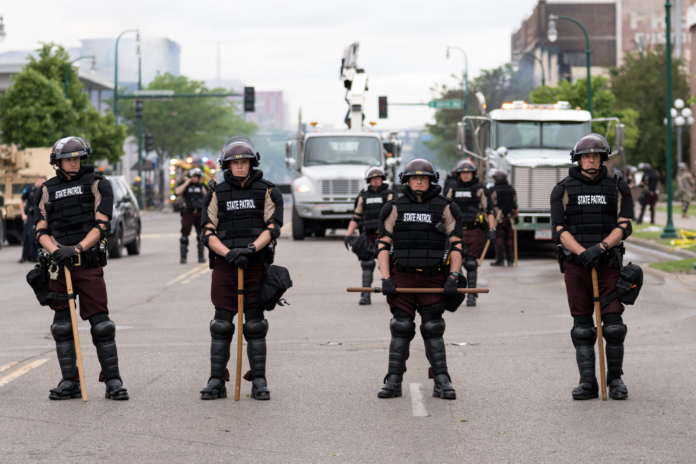
A state trooper has testified to the truth of deleted text messages and emails among his colleagues after responding to last summer’s George Floyd riots, though not without adding that the deletions were standard procedure.
At a July 28 hearing, the contents of which were made public in a recent court filing, Maj. Joseph Dwyer admitted that a “vast majority” of state troopers, himself included, deleted texts and emails shortly after responding to instances of civil unrest in 2020.
“There was a purge of emails and text messages,” he testified.
Court hearings have arisen following multiple lawsuits filed against Minnesota law enforcement officials that accuse them of unlawful force against journalists and protesters. Maj. Dwyer’s testimony took place as part of a lawsuit filed by the Minnesota chapter of the American Civil Liberties Union (ACLU).
Questioning Dwyer during his testimony was ACLU attorney Kevin Riach, with KSTP reporting that he asked, “You just decided, shortly after the George Floyd protests, this would be a good time to clean out my inbox?”
Dwyer responded with a perfunctory “That is correct.”
The major also testified that the mass deletion of texts and emails is a standard procedure among the Minnesota State Patrol, though it is not a uniform one and not ordered by supervisors.
“There’s no order,” Dwyer said. “It’s really a standard practice over the course of time that we remove, you know, delete text messages, delete e-mail messages.”
No other official records have been deleted, he added.
ACLU attorneys are highly skeptical of the text and email purges, writing in a court memo obtained by The New York Times that they are “neither accidental, automated nor routine.”
“The absence of both contemporaneous communications and documentation makes it nearly impossible to track the State Patrol’s behavior, apparently by design,” the memo reads.
Bruce Gordon of the Minnesota Department of Public Safety, however, told KSTP that the Minnesota State Patrol “follows all state agency and data retention requirements.”
Last June multiple journalists covering the George Floyd riots in Minneapolis all but accused law enforcement of targeting them. In one notable instance Minnesota state troopers arrested a CNN crew live on air after instructing them to leave the area. Several other reporters and independent journalists reported “rough treatment” from the police.
At his hearing, Maj. Dwyer’s response to such accusations was that the police were dealing with unprecedented chaos and sometimes could not easily distinguish journalists from protesters, especially when they were trying to get people off the streets after curfew.















